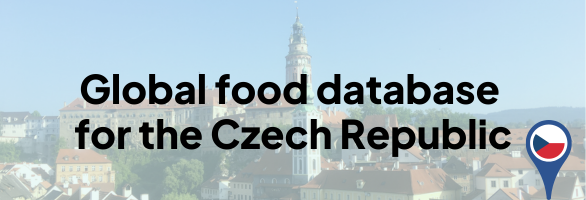
Global food database also for the Czech Republic 🇨🇿
This article is written by a contributor of Open Food Facts Jiří and it was initially published in a Czech media. You can learn more about Jiří at the end of this piece.
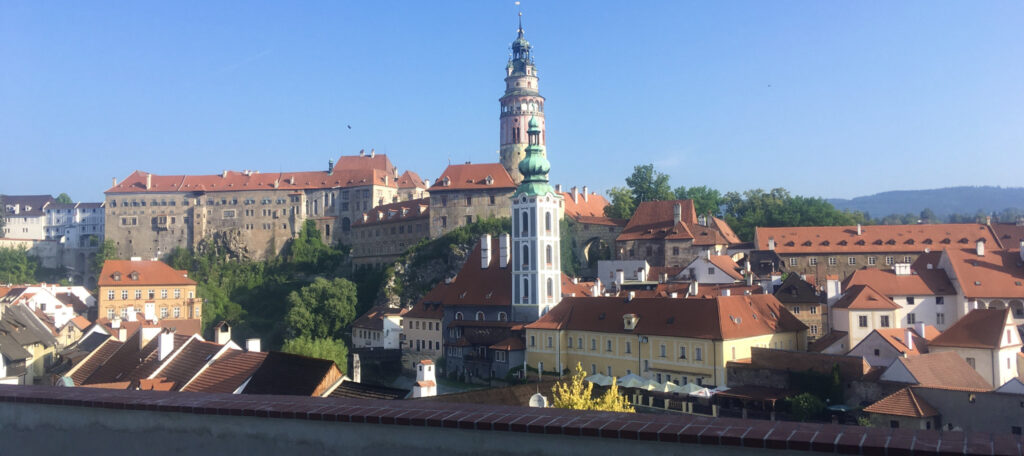
Against the backdrop of the historical events of foreign war adventures and the constant pressure of the excited emotions of it all around us, there are still opportunities to be part of something great and meaningful of our own volition.
It’s been over a year since I started volunteering with the Open Food Facts project. That is, another activity in my spare time.
I would like to try to give a short introduction from my point of view. Although the main creators are doing it themselves on the website. I just translated the website interface into Czech to better understand and use it. For readers of my articles in the Czech website of non-conformist journalism “Britske Listy” , this is another snippet in a article series about positive deviance and the free will to do things that even in a crazy time of disillusionment with the future can be created with enthusiasm and with the involvement of different people. The project is a non-profit and likens itself to global projects like Wikipedia or OpenStreetMap by its very principles of existence. It is made up of people who are willing and able to contribute, and are also open to producers, professional companies and actors in the food industry.
Open Food Facts is about nothing less than creating a global open database of the everyday food we buy. The idea was conceived in France ten years ago and from the beginning had the vision of becoming open data for all those who want to use this information or to use it to guide their diet. Whether as an ordinary supermarket customer, a vegan, a vegetarian, or even anyone else whose interests around food are more professional. With a long-term focus on health, ecology and the properties of each food.
You could say that there are many such projects around the world. And better ones? More amazing? Whatever. Yes, of course this project suffers from flaws and imperfections, because the amount of food products to take into account is quite large. But it has understandable goals and it already has results. Of course, everybody, including commercial companies or interest organisations in the Czech Republic is creating their own food data. The ordinary consumer certainly finds them or even uses their services, so there is no need to defend the usefulness to such consumers.
At the same time we are saturated with endless advice from nutritionists, physicians focused on lifestyle diseases, or in the worst case charlatans who pretend to sell us a patent to our health. All this on an all-pervasive basis of consumerist existence, which I would summarise as ‘lifestyle as commodity’. Almost everything that comes to our attention is either a commodity or a paid service of someone else. We ourselves become commodities without wanting to or even knowing it. Sometimes this is convenient, other times it is simultaneously taking away freedom of choice, or simply being happy without depending on these goods and services.
Therefore, I would like to explain what I am excited about right here and what I find interesting from my point of view.
Why I’m doing this
I decided to be part of this project and tell you what it means to me. How to explain my activity, obviously without straightforward earnings, to friends around me. Eventually I came to the conclusion that it was my expression of patriotism. In my way. By nature, I am not the kind of person who would shout slogans and wave the flag in street riots, or emphasise national pride behind the glass of beer by singling out other nations and ethnicities. I don’t want to be a furious instigator of pointless discussions on the internet and a generator of statuses with a short lifespan.
My patriotism has therefore reached a point where it is important for me to honour and support belonging to the country where I live, to the language I speak and to the culture I experience through language and country. Without the need to deny the outside world and foreign cultures. This can also be done by taking part in an international project without commercial motivation and also by involving other active people from the Czech Republic. Such people are motivated by values other than money or straightforward personal gain. It’s interesting to join and strengthen the Czech footprint on the Internet beyond the borders of the Czech Republic.
Knowing that a country like the Czech Republic is small and unimportant, I am improving it by engaging in civic transnational projects in a non-political and non-commercial way. Through people who feel the same way. Unless it is made explicit, they cannot articulate this interest and idea on their own or develop it further. But all they have to do is help them and set an example.
Many people are so indoctrinated by mass media, consumer habits, or disoriented by the information fog of anti-social networks that they think there is no such thing like a common project, or that it has no chance to exist. Yet it demonstrably works, as I mentioned above with Wikipedia, or the whole sphere of open source software development. Without the large Czech community of mostly unknown people, nothing like this would have come into existence and continued on its own for the Czechs.
What I learned
To illustrate what I learned about food in addition to adding food data, I’ll summarise it in a few insights:
- I’ve peeked at some of the non-obvious findings that you’ll never know as a customer of your favourite supermarket or food e-shop. With a little imagination, you can see from a distance how surgically precise the brands and markets where the products are located are sorted.The customer is not really “king”, as the tired mantra tells you over and over again. The customer will buy what is in their informed attention span. That’s why companies put superhuman efforts on advertising to then sell you a fart ball. It’s also why the most expensive foods in stores are placed at eye level.
- Confirmation that a particular type of good varies in quality, quantity and nutritional quality over time and place, according to the interest of the producer, not the consumer. Changing the packaging to be as appealing as possible is just a detail.
- Validation of how to work with the consumer’s short and long term memory to the benefit of the brand, not the consumer. It is impossible not to see, not to feel for oneself, what a qualitative decline has happened to well-known Czech food brands, whether it is canned food, biscuits, frozen goods, confectionery, chocolates… when they were taken over by multinational companies years ago, completely changing their recipes which they spread the impression of being traditional food… but the products themselves are stuffed with raw materials that prioritise shelf life at the expense of human or natural health, high levels of ultra-processed ingredients and food additives that create more and more allergies.
- It is hard to believe, to the ordinary people, how deeply food products from large corporations are embedded in people’s lives and in the consumption habits of people in countries around the world. The larger the corporations, the more likely it is that their product portfolios will come to your attention, but at the same time, they are often ultra-processed foods or drinks that are least beneficial to human health.
In contrast, local, regional foods tend to be healthier, or at least less environmentally damaging. But only if we take into perspective the whole eco-footprint of their existence. They may compete against global brands, but their footprint may not be as harmful.
As a positive effect, I would point out that not many private food databases are able to make nutritional comparisons or provide information about goods across countries around the world in a language you can understand. Or for goods that were previously on sale and are no longer on the market. This is important in a global society when travelling people or expats live in a foreign country and thus in a completely different food system. This is an intractable dietary problem for many people because they are effectively unfamiliar with any local food and don’t know what to avoid. There are widely used logotypes and quality labels on packaging, but there are more and more of them, and the chaos is growing. Open Food Facts also maps them for food.
I live in the city Český Krumlov, Czechia, which is a prime example of a different perception of food. Tourists arriving from Asia to spend several days, but also tourists from the rest of the world, are fascinated by the local sights, eager to taste traditional local food. And so they do, but their own microbiome is not ready for such a rapid change in the supply of dumplings and sauces, and so inevitably comes what tourists know from Egypt resorts as the fabled Pharaoh’s Revenge. The solution for the more food-sensitive tourists is to bring their own food, or to satisfy their hunger by eating in local Asian restaurants. Some native Czechs find this ridiculous because they don’t understand the implications.
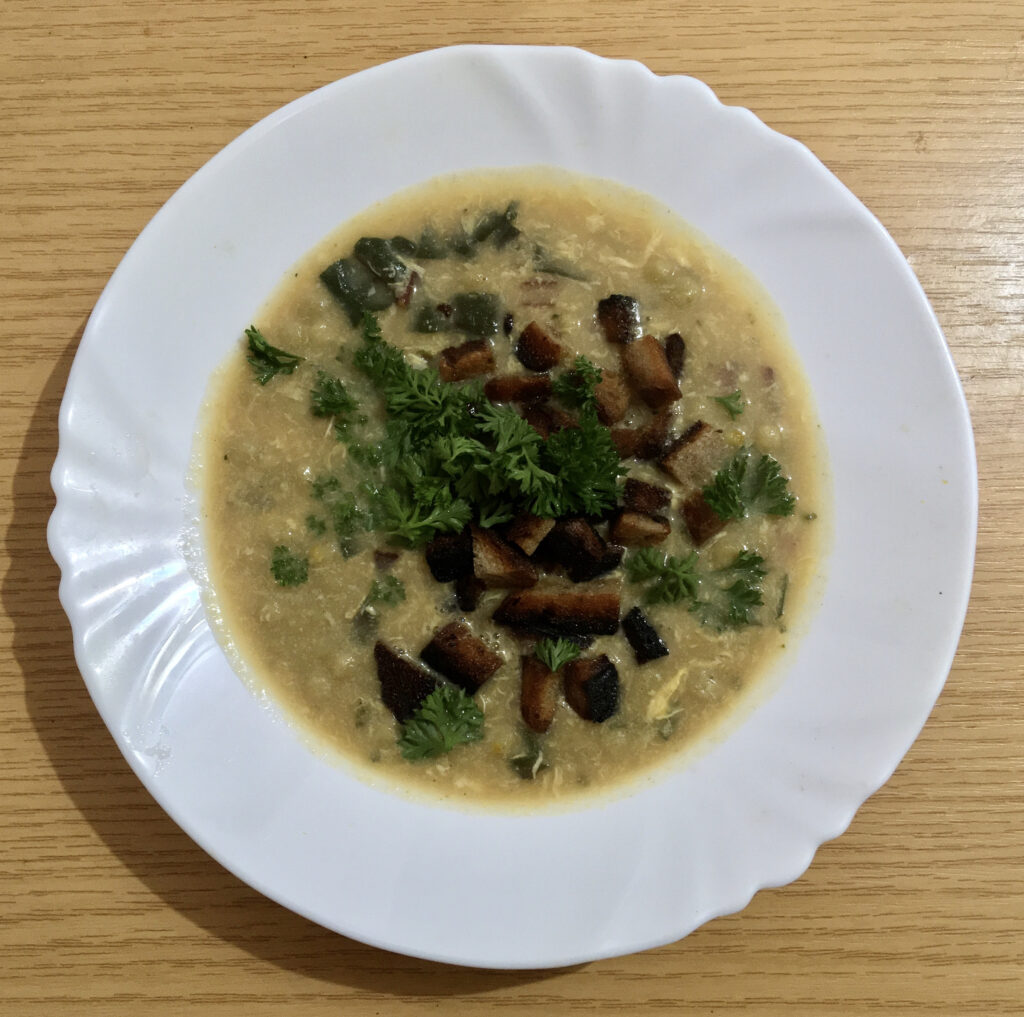
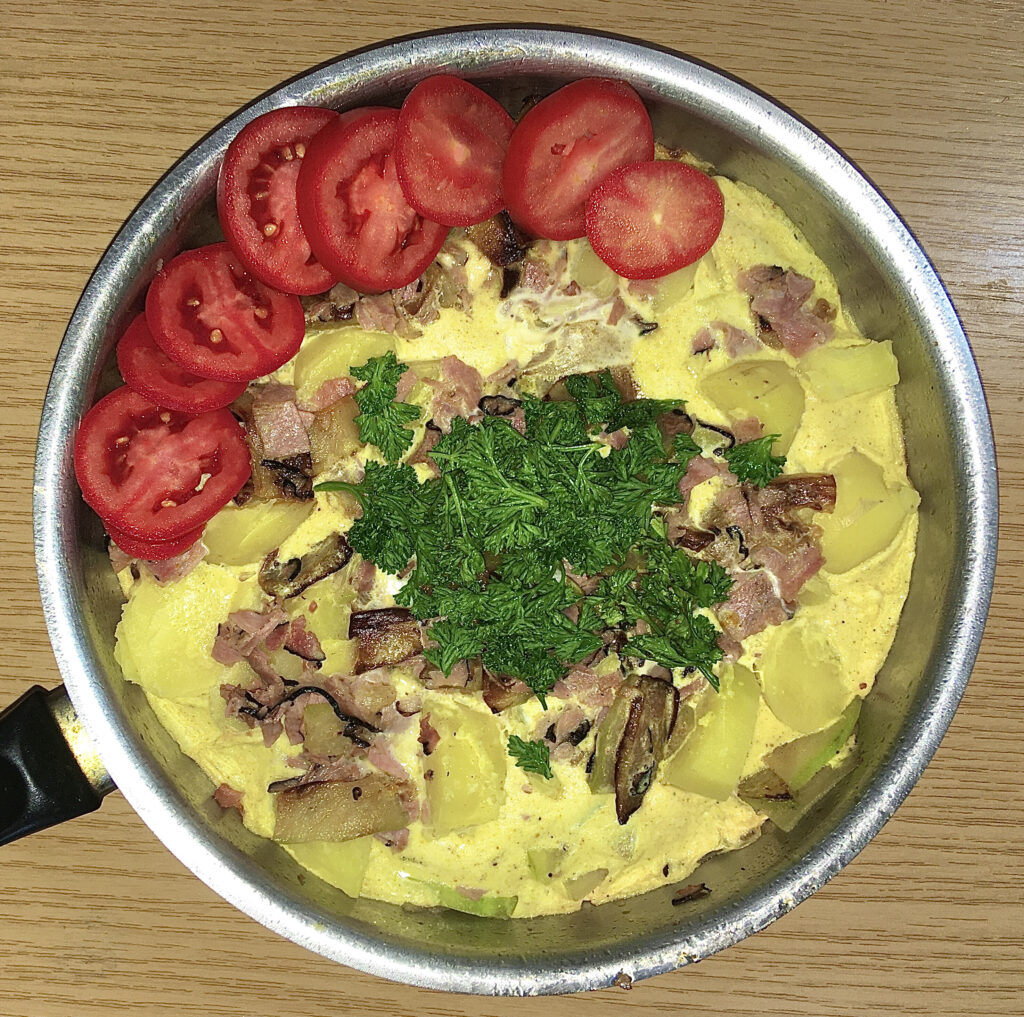
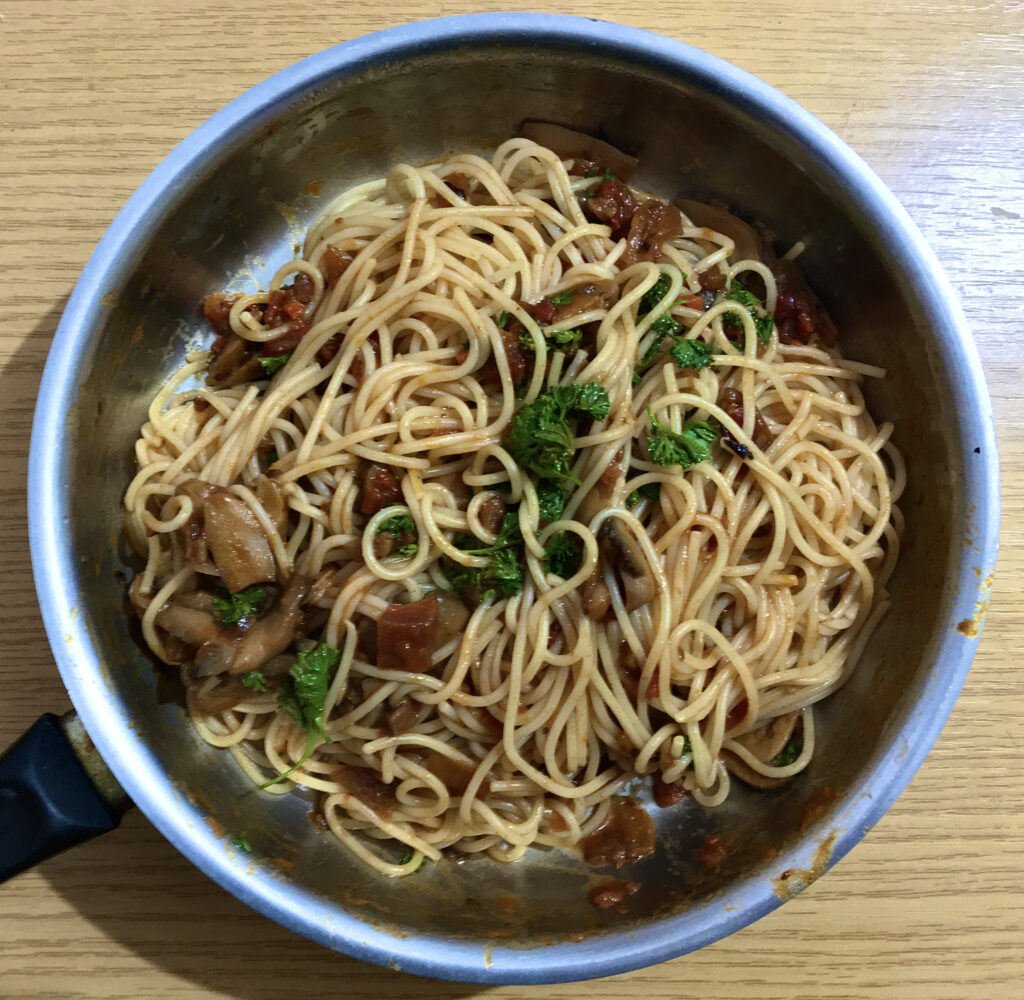
Food has packaging
Another pleasing finding was the determination and systematic way in which one can go about the very challenging task of mapping and data logging the properties of food packaging. Especially in relation to their production and environmental impact. This means their physical parameters and the quantity per unit of food. We know the food industry’s festival of futility, where wasteful or non-recyclable packaging is produced unnecessarily in the interests of greater profits. This is not insignificant, because in such a large quantity of food production, even a gram of plastic in packaging is an extra burden on the environment. Data on packaging properties for a public food database can be based on official data from manufacturers as well as from community-organised events where users weigh and identify them. They will be the basis for simple calculation and labelling of the environmental performance of packaging.
The project therefore aims to build on something similar to what has already been done with the nutritional assessment of food through the internationally accepted Nutri-Score colour scale. On a scientific basis, a scaling from healthy to unhealthy foods has been developed in France, making it easier for customers to make their purchasing choices. French consumers in particular are renowned for their interest in quality food and, more broadly, for their interest in supermarket foods with quality ingredients. In the Czech Republic, we are also seeing this trend. The state is generating all sorts of regional food labels, but in the end we see that most of the space on the shelves is taken up by products that are unlikely to stand up under nutritional scrutiny. This is the responsibility of the tandem of producers and retailers, not the hollowed-out slogan ‘the customer is king’.
I’ll continue
For my efforts, I was approached back in the covid period with an offer to spend a creative weekend in Paris amongst the people who are directly behind the creation of the project. To share with them ideas for further development. Given the uncertainty and risks of air travel, I eventually declined, but it still gives me two strong feelings: firstly, that the people behind these projects are worth the foreign personal contacts, and secondly, that thanks to the Internet, the information society can still generate results without personal contact.. At least in Paris.
In the meantime, I have emailed Czech health food chains with the offer that they can be professional contributors of data about the food they sell to the Open Food Facts database and thus strengthen the awareness of healthy products on the market. None of them responded. In any case, I believe that the existence and development of this project will not be jeopardised.
This somewhat celebratory text is not about me. I want to give the impression that it makes sense to do things that on the face of it – and by the standards of mainstream opinion – are of little importance. I think they do. In structured projects with a vision, the meaning comes later, which is why it is more lasting and why new horizons can be reached.
Please repeat to the people
The internet is not just an endlessly useless news feed about everything and nothing, an amplifier of frustrations and verbal aggression, ads and hits from egomaniacs, or pornwebs of all flavours! The internet is not fundamentally sick, it has just become in many cases a tool of those who abuse it at the expense of others.
More about Jiří
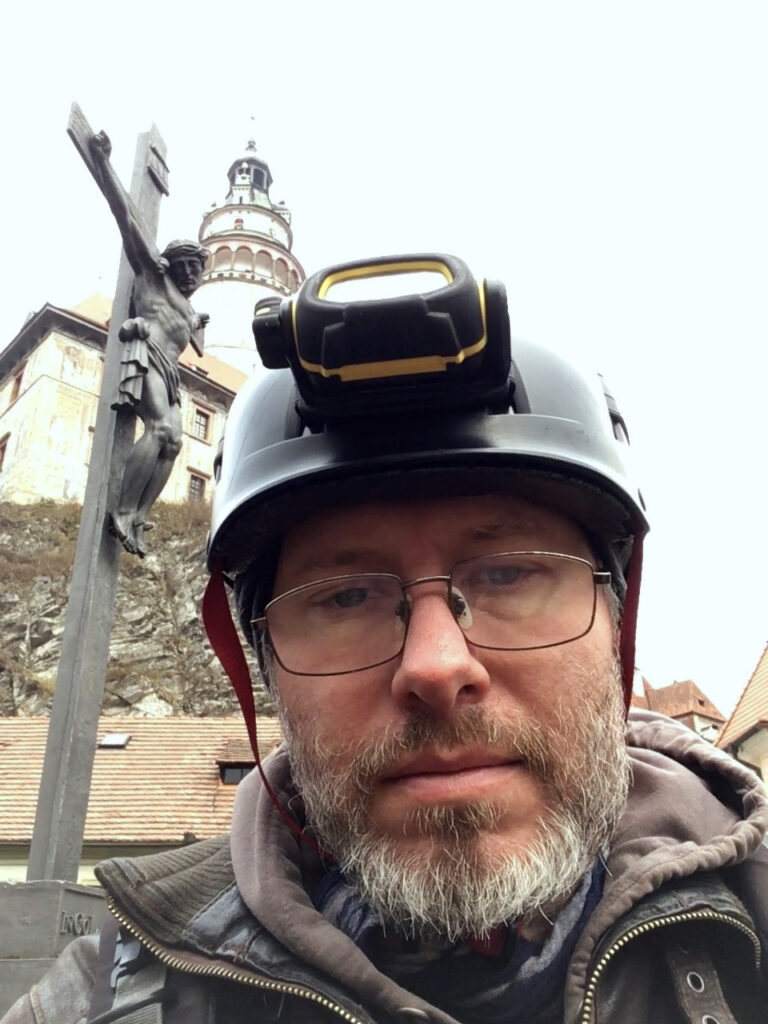
Years ago I decided to change my life, not only by where I live, but also by what I do and with what goals I do it with.
My original profession was computer graphics; I studied classic and digital prepress technology and made a living as a freelance graphic designer, software reviewer, digital creator. I have done hundreds of illustrations and written hundreds of articles in local print, including interviews with experts.
At a time when new digital media was just being born, I had several public exhibitions with digital illustration. Later I worked with information technology, creating websites and approached TV and film production as an IT specialist. I built a community of 43,000 professionals for the Czech and Slovak TV and Film industry on Facebook.
Eventually I decided to spend more time exploring what I was more passionate about and what made sense to me. I feel that the environment, health, civil society and volunteering are important topics.
I started volunteering years ago with the Missing Maps project for Doctors Without Borders. Thanks to them I learned how to work with public maps. I continued on. I voluntarily translate their Tasking Manager, MapSwipe, LearnOSM docs and many more public useful software into the Czech language.
For my another translation contribution I received a small thank you from the UN Digital Impact Alliance.
Now I work as a freelancer in tourism, but I want to devote a large part of my time to non-profit projects.
I moved from a big city to a smaller one and completely changed my lifestyle. Where I live now, I attempted an eco-project with collecting coffee grounds for composting. I am aware of the environment in my city. I have tried to support small wild animals.
I am still contributing to several long-term volunteer projects, be it mapping the environment in my country with OpenStreetMap, translating software such as DHIS2, SORMAS, CONSUL, the participatory citizen decision-making platform Decidim, and many others.
I ride an e-bike, I like to upcycle useful things, I try to grow vegetables. It’s really too much to believe, some things I can’t document, time has worn them away 🙂 The important ones are the ones that stay for everyone. But that’s life and I’m doing my best. I’m 50 years old this year.
References:
https://spotter.ngo – a website with my introduction to open-source software projects, there is also a description of my other activities.
LinkedIn profile https://www.linkedin.com/in/jipod/
Local pilot project Decidim: https://decidim.spotter.cz/
Local pilot eco-project: https://voda.spotter.cz/
List of software translations: https://spotter.ngo/preklady/
Older video blog project with public documentary https://spotter.tv etc.
